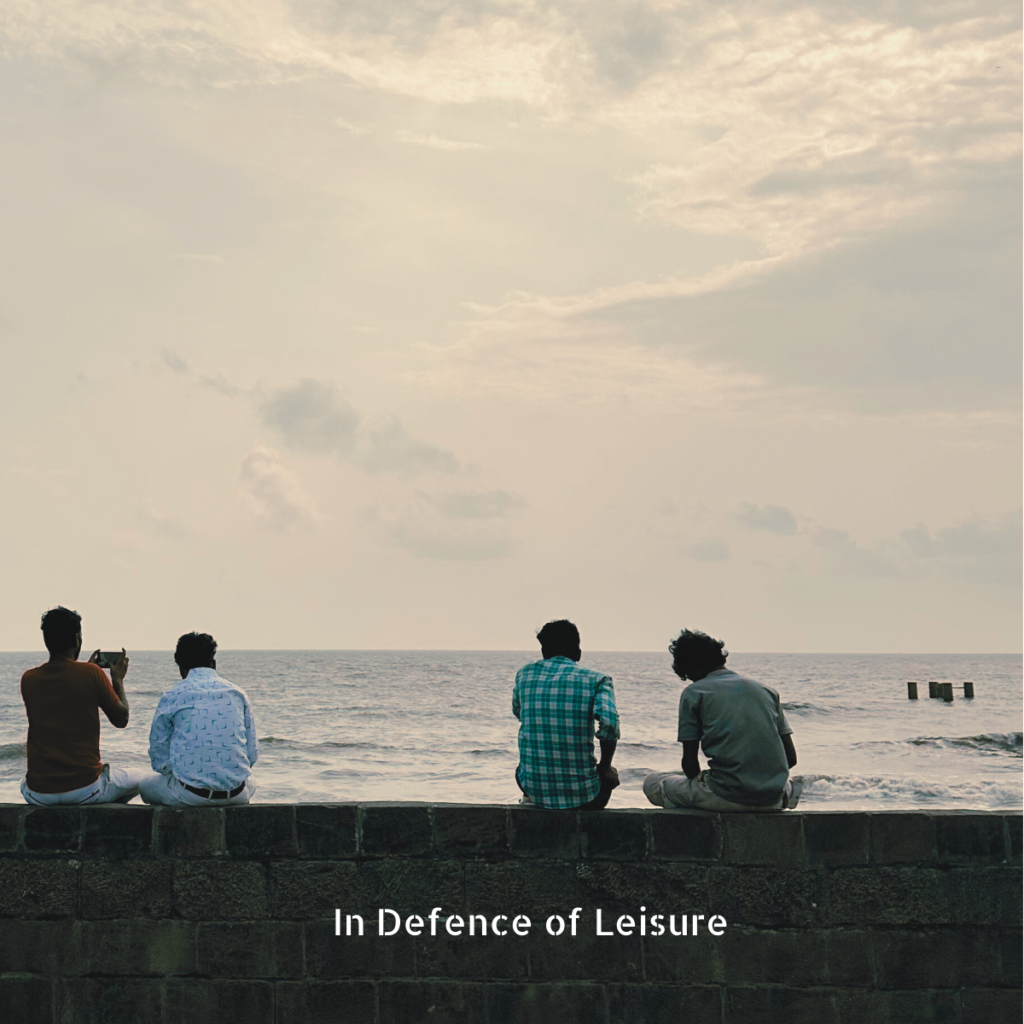Leisure for the sake of itself is a luxury. Most modern day ideas of leisure focus on its potential to increase your productivity. This approach creates a simple self perpetuating loop which clearly distinguishes work and play. The great work-life balance as if it were.

But leisure in itself needs to be experienced wholly. Without a care for what it will yield for oneself at the workplace. Many of the wellness programs at work are often misguided in this aspect. A recurring Linkedin ad promoting Zumba at the workplace says that it can help reset mindsets.
The point of leisure should be to enjoy and immerse into an activity for the pure joy of it. Anything else is a bonus. Done right, that activity can further fulfil the true meaning of what it is to be a human. The meta argument of course, here is, what is the meaning of life? Is it a life full of activity or deep contemplative thought? Aristotle considered the latter to be far more superior. He felt that life spent in higher order pursuits such as philosophy or science was far more meaningful and the highest form of activity. Even in the Indian schools, visranti has a deeper meaning and contemplation or manan is encouraged.
In this short but powerful book Vita Contemplativa, philosopher Byung-Chul Han makes a compelling argument in favour of inactivity. He argues that inactivity can breed creativity. It can shine light on the aspects of life which one takes for granted. He agrees that hyper activity leads to burnout and doesn’t bring any good to anyone. Maybe I am simplifying it too much, but yes he does call for the politics of inactivity – a movement to make rest and inactivity commonplace.
The call to inactivity is not to be seen merely as an elitist answer to burnout. While inaccessible to most, given the organisation of production, inactivity or leisure for its own innate goodness needs further backing. This is precisely why Han calls it the politics of inactivity.
Back when I used to organise trips, many of the regulars had become attuned to the idea of spending a weekend amidst nature for the pure joy of it. In fact they would even go back to the same mountain or the waterfall twice because the act of spending time outdoors was more important than ticking off new destinations. That community truly celebrated vita contemplativa!
Not having any expectations of second order effects sometimes from participating in leisure activities seems like euphoria. Perhaps euphoria is not far away. All it takes is to sometimes turn off your notifications and immerse yourself in poetry or pottery or whatever it is that you do for pleasure. The politics of inactivity begins with that singular act performed by you. This creates boundaries and awareness. And perhaps even informs the decisions at macro level. A recent viral clip of a young employee sharing her frustrations with her boss’s penchant for overworking and expecting it from her too sparked a debate on hustle culture. This prompted various thought leaders to share their views as well while the video continued to circulate rapidly.
But a lasting change, that will require more than some armchair commentaries on Linkedin.
There is an urgent need to incorporate this into the greater system of economic production. In the recent past organisations have taken a stance on burnout and overworking, no email after work hours had become fashionable a few years ago, and the rise of async communication platforms was another big shift. But hustle culture continues to be celebrated. A lopsided view of hyperactivity needs moderation. That is not rooted only in policies but philosophy of how we approach work. Now that is a deeper conversation and a longer post.